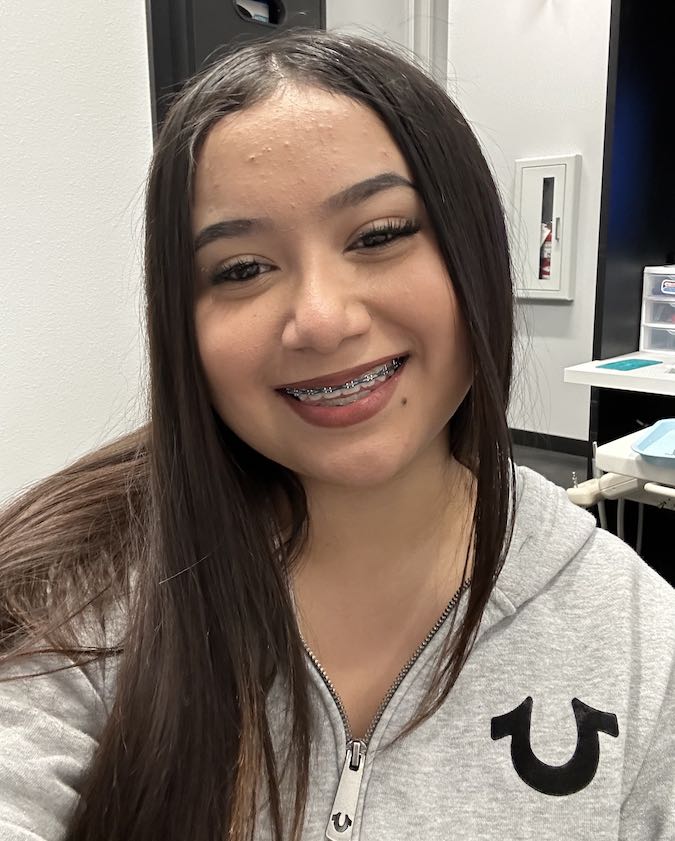Cavities can cause serious dental problems without treatment. Understanding the signs of cavities and going to the dentist right away can help you avoid health complications. In this guide, we discuss why cavities occur, explore the symptoms, and talk about prevention and treatment.
What Is a Cavity?
Cavities occur when sugar and leftover food particles interact with saliva. This creates an acidic substance called plaque that sticks to the teeth and erodes the tooth enamel. Eventually, you'll have a small hole called a cavity. If you don't get the cavity filled, the nerves and blood vessels within the teeth (pulp) can become infected. The infection can even spread to other parts of the body without medical treatment.
Cavity Signs and Symptoms
Knowing the signs and symptoms of a cavity can alert you to see your dentist before the cavity gets worse. Rather than a simple filling, an advanced cavity may require a root canal and/or a crown.
Sensitivity to Cold & Heat
You may notice pain, tingling, or discomfort when you eat or drink something hot or cold. This sensation can range from mild to severe. It's a sign that plaque has eaten through the tooth enamel and exposed the surface underneath, called dentin.
Toothache
Pain or pressure can be a sign of a cavity. If you have a toothache, see your dentist to get to the bottom of the issue.
Discoloration
At the early stages of a cavity, you may notice whitish or yellow discoloration on the tooth. Over time, this can become gray, black, or brown, as decay destroys the tooth and forms a larger hole.
Bad Breath
The presence of bacteria can cause bad breath if you have a cavity. You might notice that your mouth just doesn't seem fresh even if you brush, floss, and use mouthwash often.
Bleeding & Swollen Gums
Infection can spread to the gums from a cavity, a condition called gingivitis. Your gums may swell, redden, and bleed when you brush and floss your teeth.
Pus
You may notice white or yellow pus around the gum when a tooth has a cavity. This is a sign of an abscess, an infection that develops when bacteria enter the decayed area.
A Hole in Your Tooth
Advanced cavities can result in a visible hole in the tooth. You may notice brown or black discoloration or feel jagged or rough tooth edges with your tongue.
Pain When You Bite
Cavities can also cause sensitivity to pressure, which results in pain when you bite down. The tooth can even break if the cavity becomes advanced.

Do You Always Have Symptoms If You Have a Cavity?
Cavities don't always cause symptoms. You might not notice anything wrong until tooth decay becomes severe. If you see your dentist often, they'll be able to detect and treat plaque buildup that leads to cavities.
Cavity Causes and Risk Factors
Some parts of the mouth more commonly develop cavities. It's important to brush and floss thoroughly so you reach the base of the teeth near the gum line, between the teeth, and on the grooved surfaces of the molars. You're more likely to get cavities if you don't brush and floss after every meal. Other risk factors for cavities include:
- Chronic acid reflux, which can damage tooth enamel
- Eating disorders like bulimia or anorexia
- Chronic dry mouth
- Lack of dietary fluoride, usually in the water supply
- A diet heavy in acidic and sugary foods and beverages
Cavity Diagnosis and Treatment
If you think you have a cavity, we recommend a visit with your dentist. They'll do a thorough exam, take x-rays and recommend the best care plan for the issue. Depending on the severity of the cavity, your dentist may suggest one or more of these treatments:
- Fluoride treatments. These ward off bacteria and strengthen the tooth enamel. This can be effective for very early cavities that haven't progressed to damage the enamel.
- Fillings. The most common treatment is once a cavity begins to create a hole. The dentist will fill the gap with a material such as porcelain, resin, or an amalgam that combines multiple substances.
- Root canals. These can clear infection that's entered the pulp (inner part) of the tooth. The dentist removes the diseased tissue and either fill the resulting cavity or replaces the tooth with a crown.
- Crowns. Crowns can strengthen and replace a tooth that has severe damage from decay. The crown replaces the entire top part of the tooth with an artificial crown made from porcelain, metal, resin, gold, or composite material.
- Extractions. Removal of the tooth if it can't be restored with a filling or crown. You may need a dental implant to replace the missing tooth and keep your other teeth from moving around, which can cause other dental issues.
How to Prevent Cavities
You can prevent cavities with good oral hygiene habits. Some important steps to take include:
- Avoiding foods and drinks that contribute to cavities, such as chips, dry cereal, hard or sticky candy, cookies, cake, dried fruit, soda, ice cream, and milk
- Eating and drinking only at certain times of the day rather than snacking and having beverages other than water all day long
- Brushing after every meal with fluoride toothpaste, along with frequent flossing (at least once a day)
- Going to the dentist for cleanings and checkups every six months
- Asking your dentist about sealants, which are coatings that can prevent cavities from forming
- Adding foods and beverages that support good dental health, including vegetables, fruits, sugar-free gum, and unsweetened tea or coffee
- Replacing candy with Zollipops, a tooth-friendly candy alternative for children and adults
- Using mouthwash with fluoride

When to See a Dentist
You should see a dentist right away if you have tooth pain, discomfort, sensitivity, or any of the symptoms of a cavity described above. However, it can take a long time for cavities to show symptoms. It's important to have regular dental checkups and cleanings usually every 6 months, so your dentist can catch any potential tooth decay early before it becomes a cavity.
Risas Dental provides quality dental care across the Southwest, with locations in Arizona, Nevada, Colorado, and Texas. Our friendly, caring staff members are fluent in both English and Spanish. Book an appointment at one of our convenient offices near you today.
Frequently Asked Questions
Cavities don't go away without dental treatment. While you may see remedies advertised for home cavity repair, these don't replace the need for bacteria to be cleaned out and for the dentist to fill the hole. Otherwise, an infection can still develop and spread. However, if plaque hasn't actually created a hole in the tooth, you can potentially prevent the decay from getting worse.
You may notice a white or chalky spot on your tooth if the enamel begins to wear away. If tooth decay becomes advanced, you may notice brown, gray, or black markings on the tooth. Sometimes, a visible hole may develop.
You can probably feel a larger cavity with your tongue. It will have rough, sharp, uneven, or jagged edges. However, you usually can't feel small cavities or those in hidden areas like between the teeth.
When a cavity reaches the nerve, you'll likely feel severe pressure or pain. The sensation could wake you up in the middle of the night. You might also notice an unpleasant taste in your mouth and develop swelling and redness in the affected area.
Cavities form over an extended period of time. It can take several months or even years for a cavity to develop once plaque begins to build up on the tooth.
Most people develop an infection within six months to a year if they don't have a cavity filled. The longer you wait to seek treatment, the worse the cavity will become and the more serious the possible health consequences.
You can potentially reverse the earliest stages of tooth decay with regular, thorough brushing, and flossing. But once the enamel wears away, the cavity won't go away without dental treatment.

